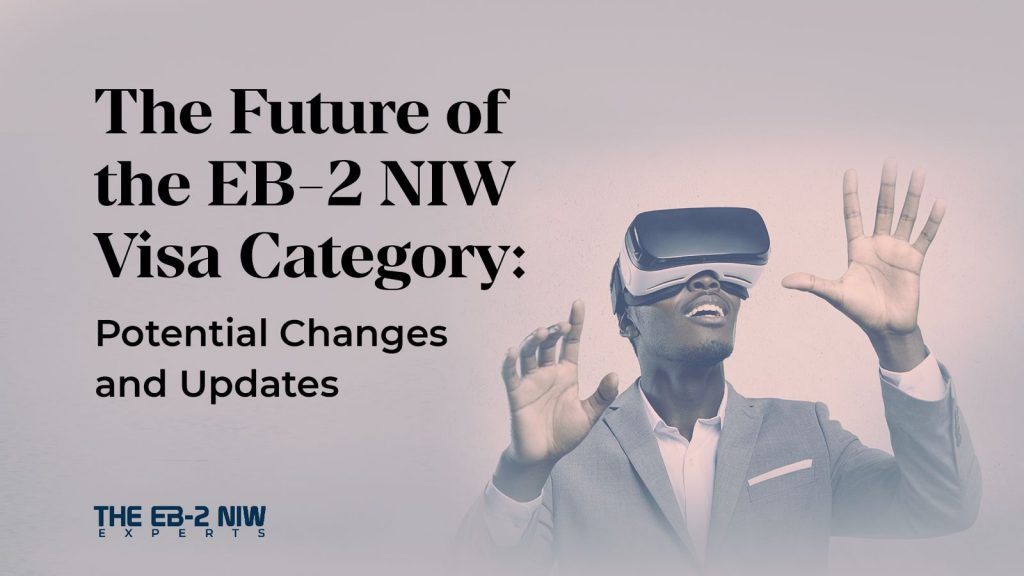The EB-2 National Interest Waiver (NIW) visa category has long been a valuable pathway for highly skilled professionals seeking to live and work in the United States without the necessity of employer sponsorship. Given the evolving immigration policies and global economic landscape, the future of the EB-2 NIW visa program is a topic of significant interest for prospective applicants and immigration experts alike. This blog post explores potential changes and updates that could shape the future of the EB-2 NIW visa category.
Understanding the EB-2 NIW Visa
Before diving into potential future developments, it’s important to understand what the EB-2 NIW visa entails. The EB-2 NIW is a subcategory of the employment-based second preference (EB-2) visa, which is available to individuals who possess an advanced degree or exceptional ability in their field. The National Interest Waiver (NIW) component allows applicants to bypass the labor certification process, provided they can demonstrate that their work is in the national interest of the United States.
For more detailed information on eligibility and the evaluation process, consider visiting EB2 NIW Experts and USCIS Newsroom.
Potential Future Developments
1. Policy Revisions
Immigration policies are subject to change based on the political climate and economic needs of the country. Future administrations might implement policy revisions aimed at either tightening or relaxing the requirements for the EB-2 NIW visa. For example, we might see adjustments in the criteria for what constitutes “national interest,” potentially expanding or narrowing the scope of eligible applicants.
2. Streamlining the Application Process
There is ongoing advocacy for making the EB-2 NIW application process more efficient. This could involve reducing processing times, simplifying paperwork, and increasing transparency in the decision-making process. Improvements in technology and administrative procedures could make the process smoother for applicants, providing quicker resolutions and less bureaucratic red tape.
3. Enhanced Criteria for Exceptional Ability
The definition of “exceptional ability” might be refined to better align with contemporary standards of excellence in various fields. This could involve more specific guidelines on what accomplishments and qualifications are considered exceptional, potentially raising the bar for applicants or, conversely, recognizing a broader array of talents and achievements.
4. Increased Collaboration with Industry
Future changes might also involve closer collaboration between immigration authorities and industry stakeholders to ensure that the EB-2 NIW program meets the dynamic needs of the U.S. economy. This could result in more targeted recruitment of professionals in high-demand sectors such as technology, healthcare, and renewable energy.
5. Impact of Global Events
Global events, such as the COVID-19 pandemic, have a profound impact on immigration policies. As countries navigate post-pandemic recovery, there may be shifts in immigration priorities. The U.S. might focus more on attracting professionals who can contribute to critical sectors affected by global crises, influencing the types of professions and expertise prioritized under the EB-2 NIW category.
Considerations for Prospective Applicants
For those considering the EB-2 NIW visa, staying informed about potential changes and updates is crucial. Regularly checking reliable sources such as the USCIS Newsroom can provide the latest information on policy changes and application procedures.
Moreover, consulting with immigration experts can significantly enhance the chances of a successful application. Services like EB2 NIW Experts offer evaluations and guidance tailored to individual cases, ensuring applicants meet the stringent requirements of the EB-2 NIW category.
For a personalized evaluation of your qualifications and to explore your eligibility for the EB-2 NIW visa, visit EB2 NIW Experts Evaluation.
Conclusion
The future of the EB-2 NIW visa category is poised for potential changes that reflect the evolving needs of the U.S. economy and society. Staying informed and prepared can make a significant difference for prospective applicants. By leveraging expert guidance and staying updated with policy shifts, skilled professionals can navigate the complexities of the EB-2 NIW visa process and contribute to the national interest of the United States.


